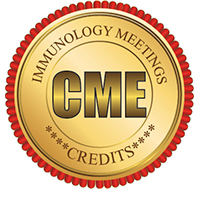
Simon Afewerki
Huazhong University of Science and Technology, China
Title: Factors associated with HIV/AIDS Knowledge and attitude among young women of Nigeria and Democratic Republic of Congo: Cross-Sectional Study
Biography
Biography: Simon Afewerki
Abstract
Background & Aim: Adequate comprehensive knowledge on HIV/AIDS and positive acceptance attitude towards People Living with HIV/AIDS (PLHA) are very important and vanguards in averting and ending the epidemics. This study was aimed at assessing the associates of comprehensive HIV/AIDS knowledge and acceptance attitude towards PLHA among young women aged 15-24 of Nigeria and Democratic Republic of Congo (DRC).
Methods: A cross-sectional study using the 2013 Nigeria and 2013-14 Democratic Republic of Congo Demographic and Health Survey (DHS) data. IBM SPSS version 22 was employed to multivariate logistic regression. Statistical significance was set at p<0.05.
Results: Awareness of the young women of Nigeria (91.1%) and DRC (90.6%) was generally stable. Comprehensive HIV/AIDS knowledge (33.6% vs. 9.8% respectively) and acceptance attitude towards PLHA (28.4% vs. 3.2% respectively) was low. Age, place of residence, educational level, religion, marital status and wealth index were significant associates of comprehensive HIV/AIDS knowledge. Similarly, age, educational level, religion, marital status, wealth index and comprehensive HIV/AIDS knowledge showed significant associations with acceptance attitude towards PLHA. After controlling the socio-demographic characteristics, higher comprehensive HIV/AIDS knowledge (OR 1.09, 95% C.I 1.01-1.17) and acceptance attitude towards PLHA women (OR 2.54, 95% C.I 2.17-2.98) was observed among young women in Nigeria than in DRC.
Conclusion: A high level of HIV/AIDS awareness was observed. However the level of comprehensive HIV/AIDS knowledge and acceptance attitude towards PLHA was very low. Hence educational intervention programs to raise the awareness and knowledge of the young women on HIV/AIDS are highly needed.

